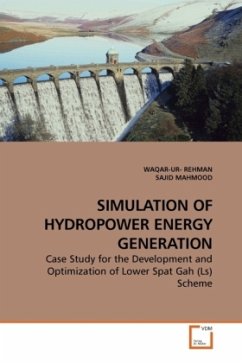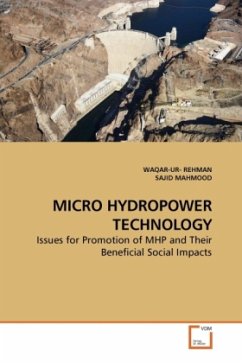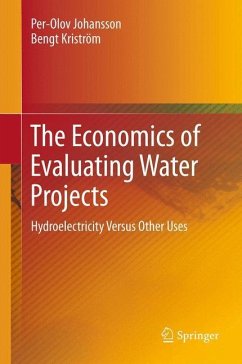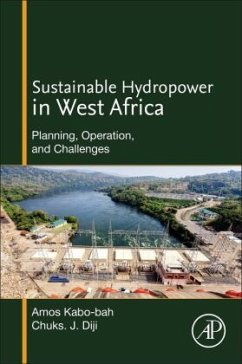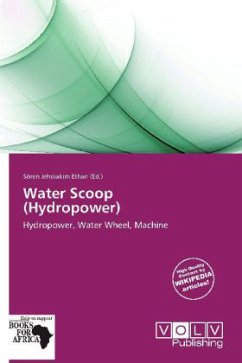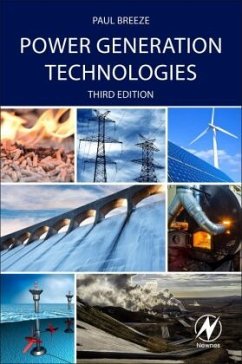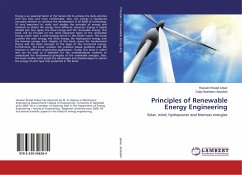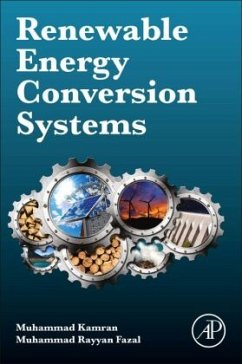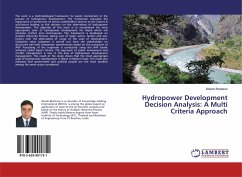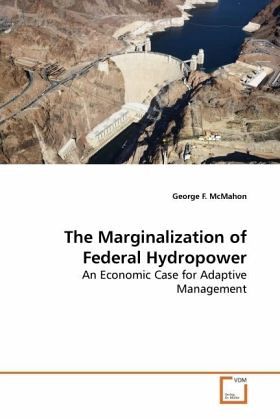
The Marginalization of Federal Hydropower
An Economic Case for Adaptive Management
Versandkostenfrei!
Versandfertig in 6-10 Tagen
52,99 €
inkl. MwSt.

PAYBACK Punkte
26 °P sammeln!
The Marginalization of Federal HydropowerMultipurpose federal reservoirs, and the conjunctive and disjunctive purposes they serve, constitute a water resource infrastructure that invariably changes over time, reflecting not only changing economic benefits and beneficiaries, but the evolution of social and environmental concerns as well. This research investigates the adaptability of current federal policy in response to changing values and priorities on uses of water and storage, measured in part by (1) the continued ability to identify the highest and best uses of storage in federal multipurp...
The Marginalization of Federal Hydropower
Multipurpose federal reservoirs, and the conjunctive
and disjunctive purposes they serve, constitute a
water resource infrastructure that invariably
changes over time, reflecting not only changing
economic benefits and beneficiaries, but the
evolution of social and environmental concerns as
well. This research investigates the adaptability of
current federal policy in response to changing
values and priorities on uses of water and storage,
measured in part by (1) the continued ability to
identify the highest and best uses of storage in
federal multipurpose reservoirs presently
incorporating hydropower, and (2) the degree to
which emerging concepts of sustainability can be
accommodated and factored into the future management
of these assets.
Historically-increasing valuation of water in
alternative uses and electric power industry
deregulation have combined to reduced the economic
benefits of hydropower. In addition, heightened
public environmental concerns make imperative
adaptations to federal water policy to effect
sustainability improvements.
Multipurpose federal reservoirs, and the conjunctive
and disjunctive purposes they serve, constitute a
water resource infrastructure that invariably
changes over time, reflecting not only changing
economic benefits and beneficiaries, but the
evolution of social and environmental concerns as
well. This research investigates the adaptability of
current federal policy in response to changing
values and priorities on uses of water and storage,
measured in part by (1) the continued ability to
identify the highest and best uses of storage in
federal multipurpose reservoirs presently
incorporating hydropower, and (2) the degree to
which emerging concepts of sustainability can be
accommodated and factored into the future management
of these assets.
Historically-increasing valuation of water in
alternative uses and electric power industry
deregulation have combined to reduced the economic
benefits of hydropower. In addition, heightened
public environmental concerns make imperative
adaptations to federal water policy to effect
sustainability improvements.



